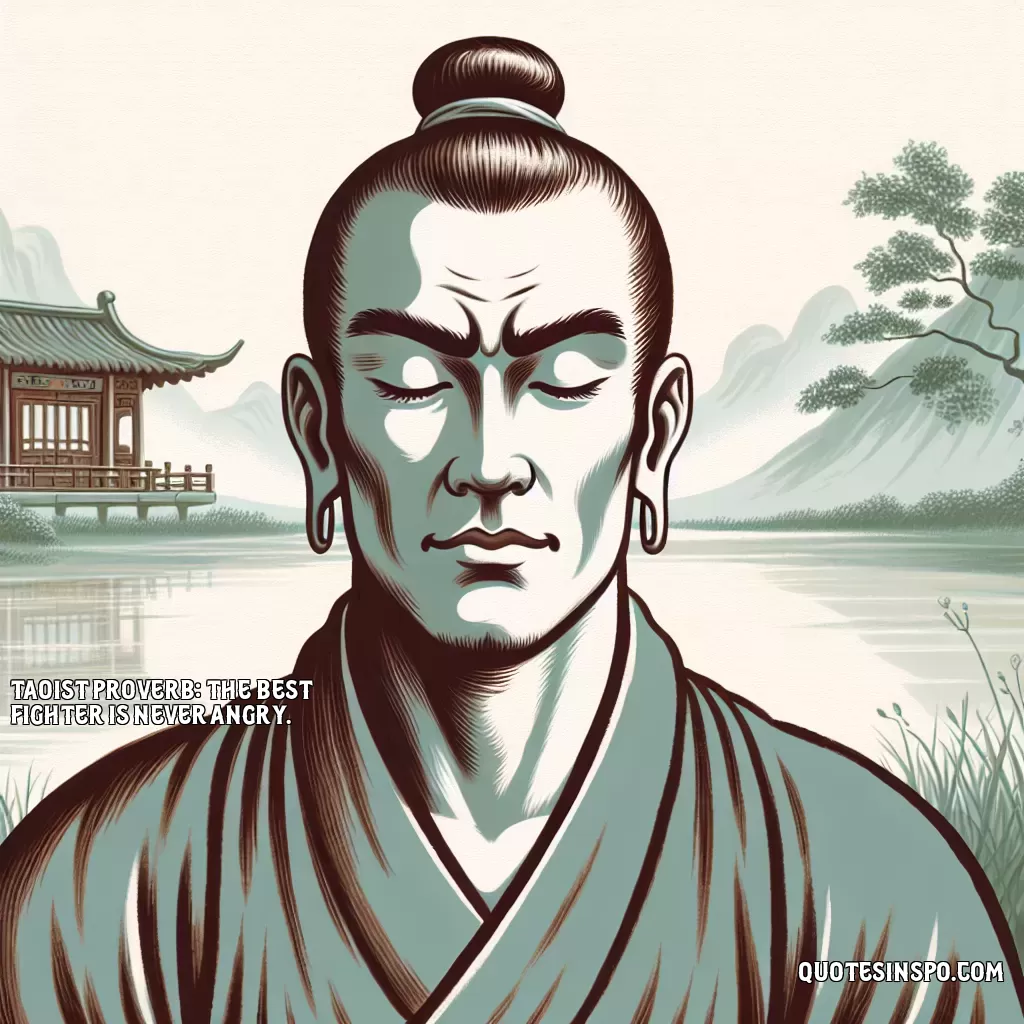
Taoist Proverb: The best fighter is never angry.
The Taoist proverb "The best fighter is never angry" conveys the idea that effective strength and mastery in conflict stem from a composed and clear mind rather than from anger or aggression. At its core, Taoism advocates for harmony, balance, and the flow with the natural order of life, often referred to as "The Way" or "Tao." In the context of combat, this proverb suggests that true mastery is achieved through self-control and emotional regulation. Anger is a powerful emotion that can cloud judgment and lead to impulsive or reckless actions. A fighter consumed by anger might lose their focus, make careless mistakes, or become predictable in their actions. On the other hand, a fighter who remains calm and centered can think strategically, adapt to their opponent's movements, and conserve their energy for when it is most needed. Moreover, this proverb implies that the best fighter has the wisdom to choose their battles and avoid unnecessary conflicts. By not allowing anger to dictate their actions, they are more likely to seek peaceful resolutions or avoid aggression entirely. This reflects a broader Taoist principle of valuing non-action or wu wei, which is often interpreted as a kind of effortless action that aligns with the natural flow of life. Ultimately, the proverb illustrates the Taoist belief that true strength lies not in physical prowess or dominance but in the ability to maintain inner peace and act in accordance with the Tao. This internal tranquility not only makes one a better fighter but also a more compassionate and wise individual outside of the battlefield.
Quote By: Laozi
Laozi, an ancient Chinese philosopher and writer believed to have lived in the 6th century BCE, is best known as the founder of Daoism and the attributed author of the "Dao De Jing" (Tao Te Ching), a fundamental text of Daoist philosophy. His teachings emphasize living in harmony with the Dao (Tao), or the fundamental principle that underlies and unites everything in the universe, promoting values such as simplicity, humility, and compassion. Laozi's influence extends beyond philosophy, impacting Chinese culture, religion, and political thought for centuries.
Bio added on: 2025-04-10 14:49:01